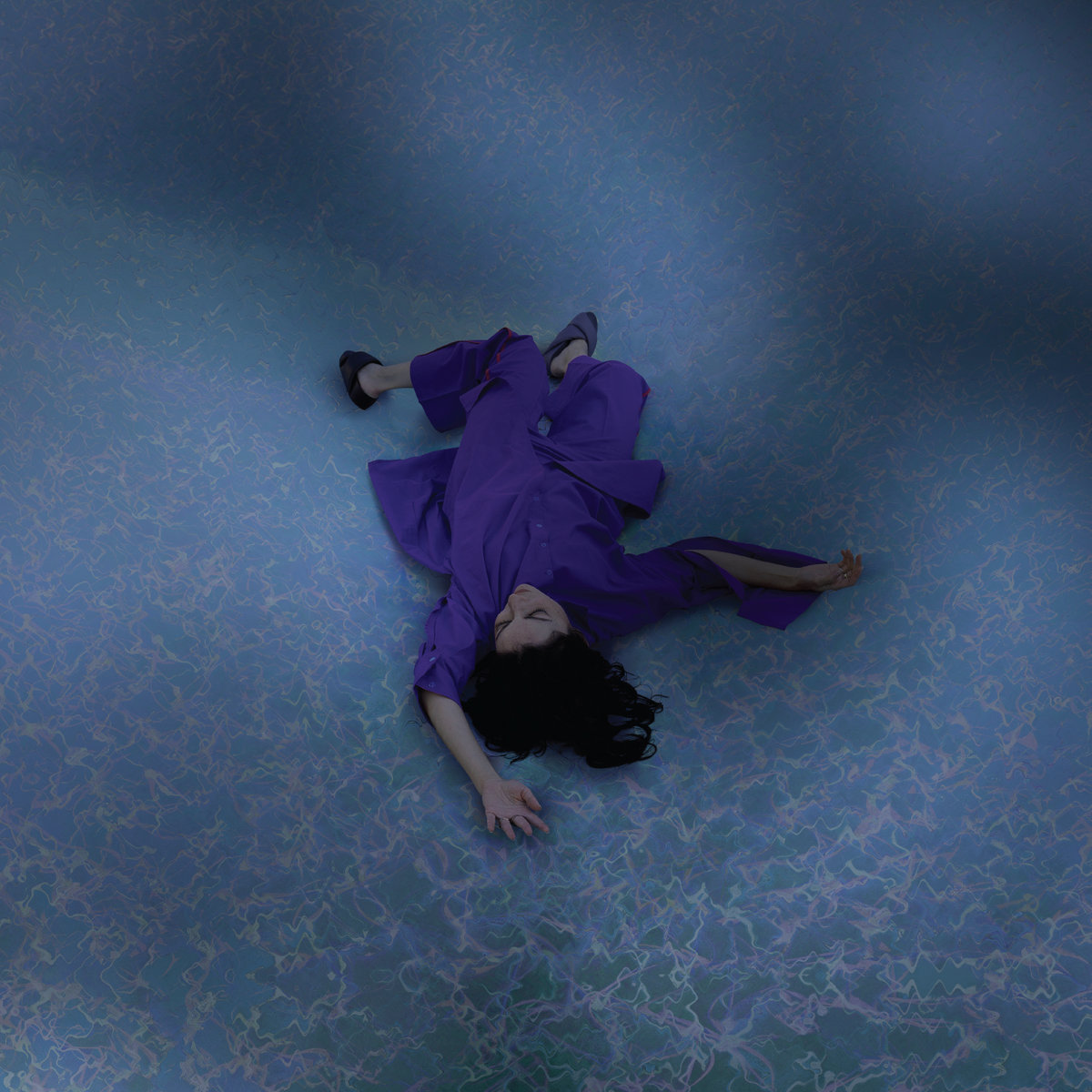 I was caught completely off guard by this latest opus from Dalt, as much of it sounds more like a three-way collaboration between Astrud Gilberto, Perez Prado, and Walter Wanderley than anything resembling the warped and stark electronic pop mutations that the Colombian composer has become synonymous with. After my initial disbelief subsided, however, I quickly decided that ¡Ay! may very well be the strongest album of Dalt's career to date. I suspect Dalt herself would probably agree, as it would be fair to say that her vision remains as compelling and innovative as ever, but she has merely kicked her self-imposed artistic restraints to the curb and embraced the warmer, more sensuous, and melodic sounds that she grew up around. Or, as the album description colorfully puts it, "through the spiraling tendencies of time and topography, Lucrecia has arrived where she began." In any case, the end result is a wonderfully sultry and evocative collection of seductive vocals and tropical rhythms beautifully enhanced with a host of psychotropic and industrial-damaged touches. And she somehow makes it sound like the most natural thing in the world. I definitely did not expect Dalt to secretly be a tropical pop genius at all, which makes her previous albums all the more fascinating now that I know that they were made while pointedly suppressing some of her greatest strengths.
I was caught completely off guard by this latest opus from Dalt, as much of it sounds more like a three-way collaboration between Astrud Gilberto, Perez Prado, and Walter Wanderley than anything resembling the warped and stark electronic pop mutations that the Colombian composer has become synonymous with. After my initial disbelief subsided, however, I quickly decided that ¡Ay! may very well be the strongest album of Dalt's career to date. I suspect Dalt herself would probably agree, as it would be fair to say that her vision remains as compelling and innovative as ever, but she has merely kicked her self-imposed artistic restraints to the curb and embraced the warmer, more sensuous, and melodic sounds that she grew up around. Or, as the album description colorfully puts it, "through the spiraling tendencies of time and topography, Lucrecia has arrived where she began." In any case, the end result is a wonderfully sultry and evocative collection of seductive vocals and tropical rhythms beautifully enhanced with a host of psychotropic and industrial-damaged touches. And she somehow makes it sound like the most natural thing in the world. I definitely did not expect Dalt to secretly be a tropical pop genius at all, which makes her previous albums all the more fascinating now that I know that they were made while pointedly suppressing some of her greatest strengths.
RVNG Intl.
The opening "No Tiempo" initially evokes a "late-night cable" fever dream vibe in which a Bela Lugosi vampire movie blurs into an organ-happy televangelist, but it quickly transforms into swaying tropical bliss once the flutes and the lazily sultry groove make the scene. It has the feel of a Wanderley/Gilberto collaboration that has been punched up (and sexed up) for contemporary ears by an intrepid DJ (though I was still startled by the brass finale). It is a great piece, but it is immediately eclipsed by the following "El Galatzó," which masterfully combines hushed, confessional-sounding vocals with bass strums, trilling flutes, cooing backing vox, swelling strings, industrial scrapes, strangled feedback, and killer hand-percussion to cast a sustained spell of noir-ish, cinematic seduction. While "El Galatzó" would be my personal pick for the album's reigning highlight, the album is not hurting for other hot contenders for that honor. In "Contenida," for example, a hallucinatory fog and a jazzy double bass motif cohere into some kind of humid and dubby bossa nova mindfuck, which then beautifully erupts in a viscerally clattering metal percussion frenzy. If the whole album sustained a similarly perfect balance of ambitious dub/industrial production brilliance and sultry songcraft, I would have no hesitation at all about proclaiming ¡Ay! to be the album of the year.
Instead of flogging that winning formula to death, however, Dalt opted to explore some alternate flavors of dubby, industrial-gnawed seduction with the remaining pieces. On "Atemporal," Dalt strikes gold again with a simmering groove, soulful horns, and a warbly Farfisa-sounding hook. Elsewhere, "Gena" returns to languorously noir moods, resembling a deconstructed Perez Prado cut enhanced with Thirlwell-esque blurts of artificial brass and a host of texturally delightful dub flourishes. Literally every single song on the album is compelling, however, as Dalt keeps finding new ways to surprise and delight me. Sometimes she plays things almost unrecognizably straight ("Bochinche"), while other pieces pack bracingly gnarled crescendos or psychotropic flurries of panning and echoing percussion. Other times, I am blindsided by arrangements so ambitious that I would have guessed that a major motion picture studio had lavished Dalt with money to assemble her own Xavier Cugat-esque all-star orchestra. Sadly, that probably did not happen, but Dalt did enlist an impressive batch of guest musicians to bring her dream to life nonetheless. Moreover, she managed to make this album in Berlin during a pandemic rather than from a seaside town in 1960s Brazil, Colombia, or Cuba, which makes her something of a master illusionist as well. The sole caveat with ¡Ay! is that a lot of Dalt's previously distinctive idiosyncrasies are present in more muted form than usual, which may disappoint fans of her more "outer limits" tendencies. To my ears, however, Dalt has actually transcended those tendencies in inspired fashion, as ¡Ay! feels more natural and less self-consciously arty than her previous work (and it does not hurt that it is absolutely packed with hooks as well).
Read More

